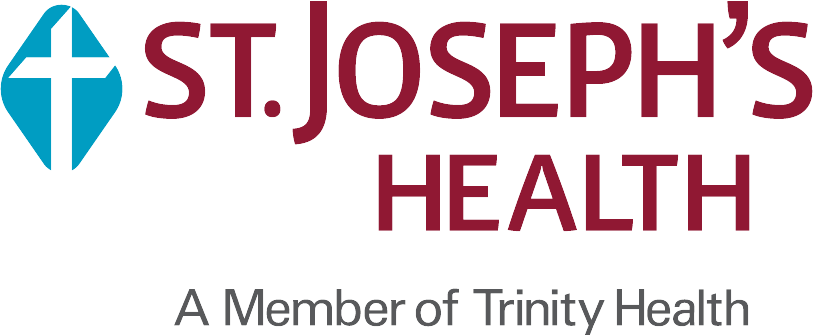St. Joseph’s Health CVI is One of Two Clinics in NYS to Participate in an Important Clinical Study of High Blood Pressure
March 14, 2024SYRACUSE, N.Y.— Nearly half of Americans ages 20 years and up – or more than 122 million people – have high blood pressure. St. Joseph’s Health Cardiovascular Institute is the only center in the entire upstate New York region, and one of only four clinics in New York State, participating in a national clinical trial that could be life-changing for patients with uncontrolled high blood pressure who have not responded to current treatment options. This type of high blood pressure is called resistant hypertension.
The single-arm interventional study is evaluating the long-term safety, efficacy, and durability of Medtronic’s “Symplicity Spyral Renal Denervation (RDN) System.” Renal denervation – also called renal ablation – is a minimally-invasive way to treat resistant hypertension.
Ayman Iskander, MD, FACC, FSCAI, president and director of research at SJH Cardiology Associates, is the principal investigator of the study.
First, patients undergo a traditional renal angiogram, which is an imaging test that uses a catheter to help the doctor examine the blood vessels of the kidneys. Next, the patient is treated with the renal denervation procedure using the Symplicity Spyral multi-electrode renal denervation catheter and the Symplicity G3™ renal denervation RF generator.
The Symplicity blood pressure procedure is a minimally invasive procedure that targets nerves near the kidneys that can become overactive and cause high blood pressure. After sedation, the doctor inserts a very thin tube into the artery leading to the kidney. The doctor then administers energy to calm the excessive activity of the nerves connected to the kidney. The tube is removed, leaving no implant behind. The Symplicity blood pressure procedure is a proven way to help reduce blood pressure when medications and lifestyle changes are not enough.1-3 As a pioneer in renal denervation, Medtronic spent over ten years developing this alternative solution to managing resistant hypertension. The study will enroll 1,200 participants and is still recruiting patients who are 18 years of age or older, have been diagnosed with hypertension with a baseline office systolic blood pressure of 140 mmHg or higher, and people who have tried lifestyle changes and blood pressure-lowering medications without success. Certain conditions like pregnancy and a renal artery aneurysm, among others, exclude patients.
The current study will review outcome measures, including changes in systolic blood pressure, changes in hypertension health status scores, quality of life scores, changes in medications and the incidence of major adverse events at various intervals after treatment, from three to 36 months post-procedure.
Physicians wishing to refer patients for study consideration may contact Laura Mowers, MS, CCRP, clinical research coordinator at SJH Cardiology Associates at
315-234-4412.
Medtronic says the Symplicity Spyral RDN system is proven to achieve significant, safe, and sustained blood pressure reductions in the presence and absence of medications in multiple clinical trials and a real-world patient registry.1-4 In previous clinical trials, the mean reduction in office systolic blood pressure in patients on and off medications was > 9 mmHg1-5.
The current study is expected to be completed in 2027.
1 Mahfoud F, Kandzari DE, Kario K, et al. Long-term efficacy and safety of renal denervation in the presence of antihypertensive drugs (SPYRAL HTN-ON MED): a randomised, sham-controlled trial. The Lancet. 2022; 399(10234):1401–1410.
2 Mahfoud F, Mancia G, Schmieder R, et al. Three-year safety and efficacy in the Global Symplicity Registry: Impact of antihypertensive medication burden on blood pressure reduction. Presented at PCR e-course 2020.
3 Böhm M, Kario K, Kandzari DE, et al. Efficacy of catheter-based renal denervation in the absence of
antihypertensive medications (SPYRAL HTN-OFF MED Pivotal): a multicentre, randomised, sham-controlled trial. The Lancet. 2020;395(10234):1444–1451.
4 Kandzari DE, Böhm M, Mahfoud F, et al. Effect of renal denervation on blood pressure in the presence of antihypertensive drugs: 6-month efficacy and safety results from the SPYRAL HTN-ON MED proof-of-concept randomised trial. Lancet. 2018 Jun 9;391(10137):2346-2355.
5 Townsend RR, Mahfoud F, Kandzari DE, et al. Catheter-based renal denervation in patients with uncontrolled hypertension in the absence of antihypertensive medications (SPYRAL HTN-OFF MED): a randomised, sham-controlled, proof-of-concept trial. The Lancet. 2017;390:2160–2170.
